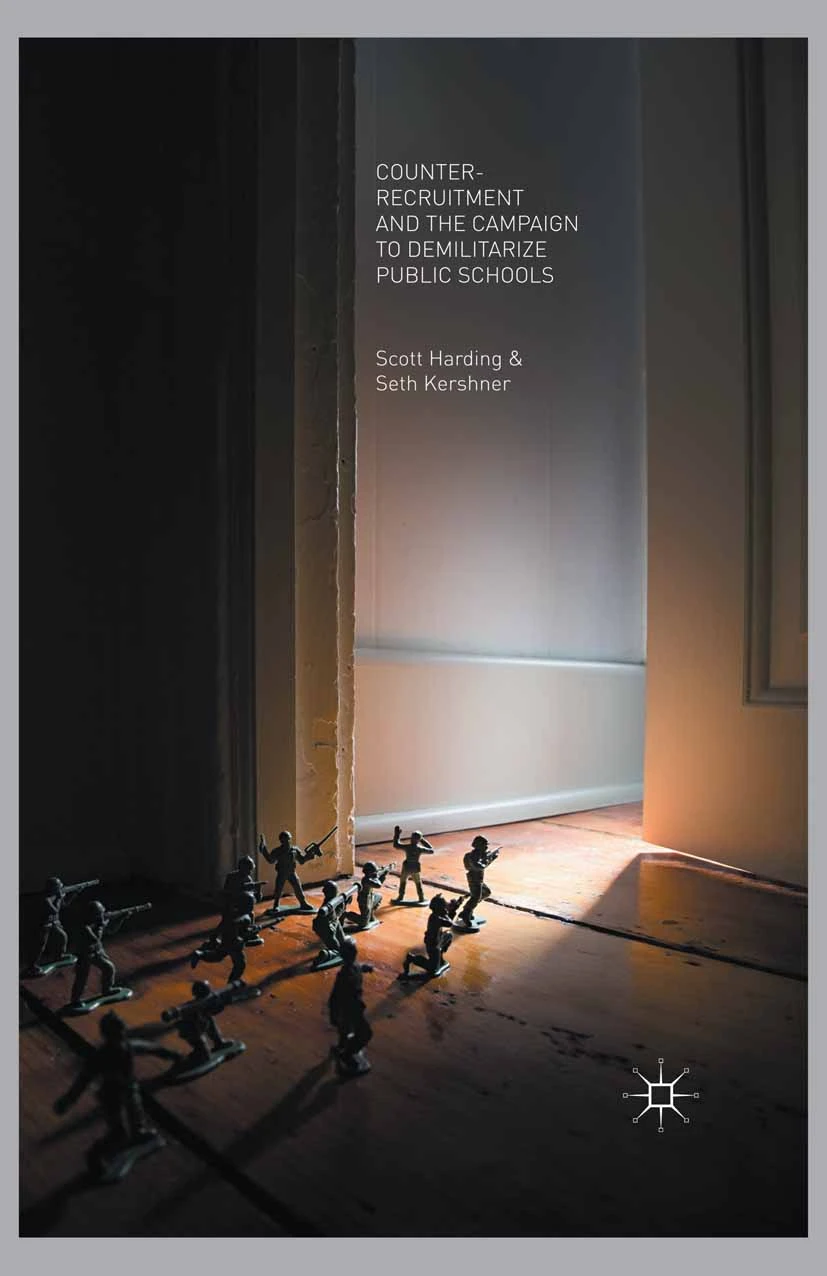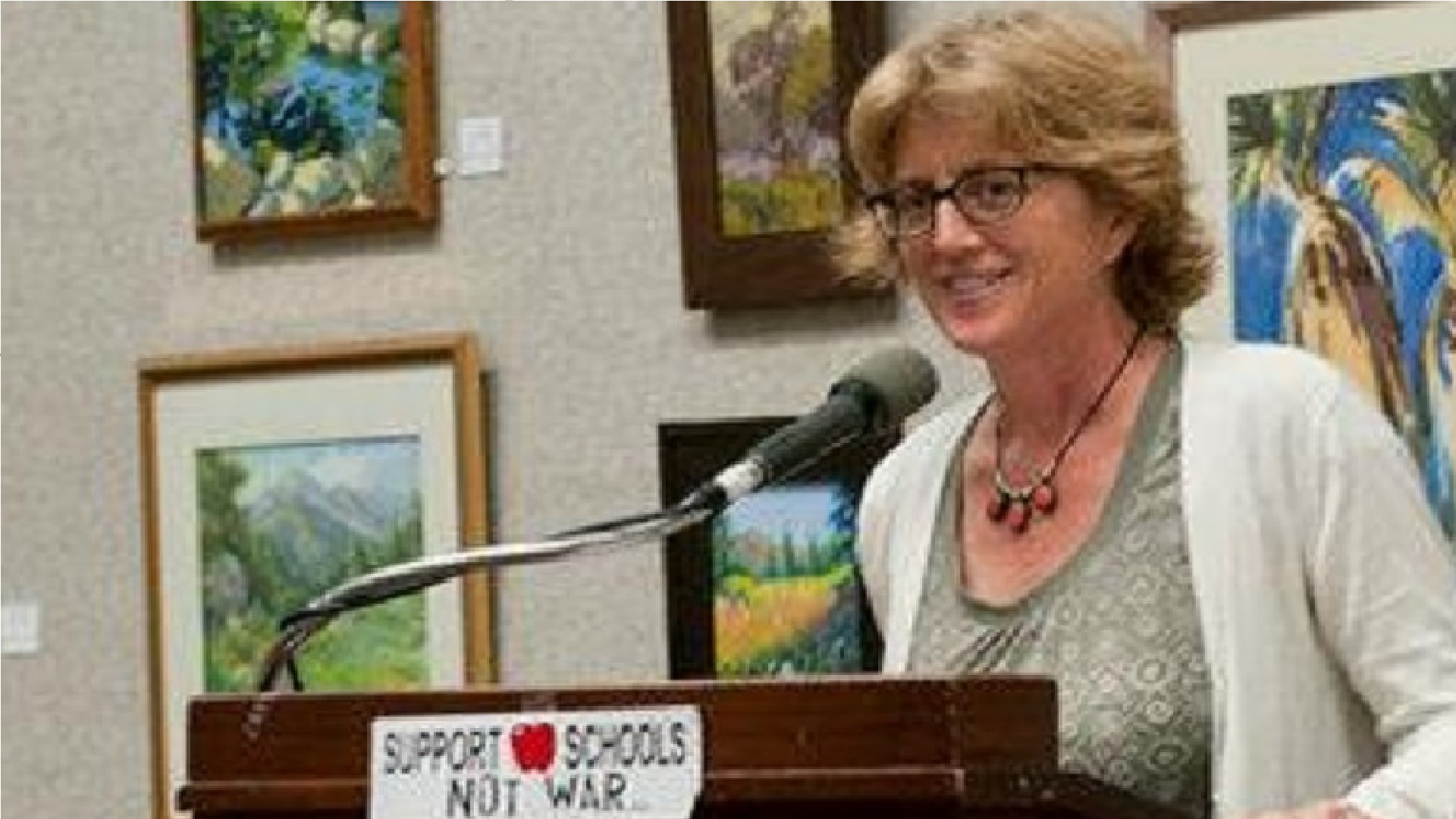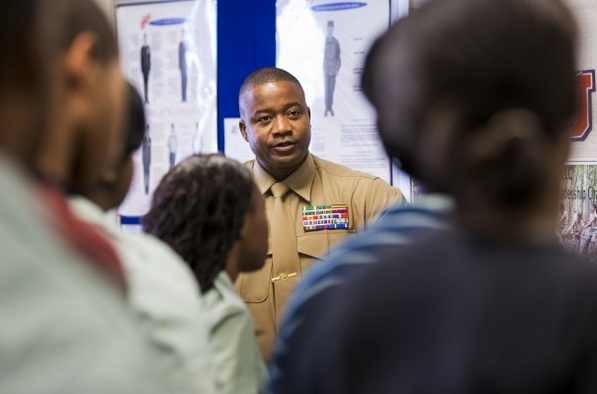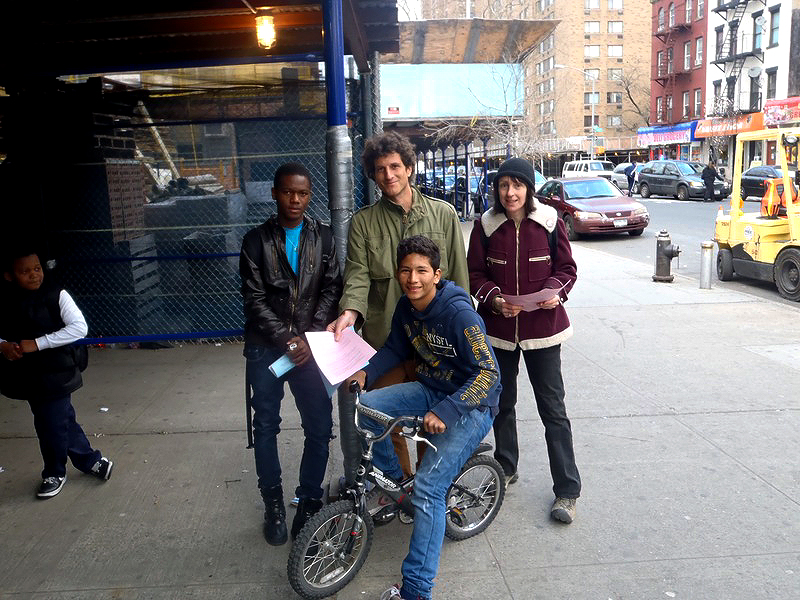Scott Harding, Seth Kershner -
| ISBN | 9781137515254 |
| Publication Date | September 2015 |
| Formats | Hardcover Ebook (EPUB) Ebook (PDF) |
| Publisher | Palgrave Macmillan |

"What does sustainable anti-militarization look like? Who does it—and how? This fascinating book pulls back two curtains, first on how American high schools are being steadily militarized, and second, on how thoughtful, committed local counter-recruitment activists are rolling back that militarizing process, school by school, town by town. For any of us in critical security studies, American studies, peace studies, education, or women's and gender studies, this is a genuinely valuable book." - Cynthia Enloe, author of Nimo's War, Emma's War: Making Feminist Sense of the Iraq War (2010)
The United States is one of the only developed countries to allow a military presence in public schools, including an active role for military recruiters. In order to enlist 250,000 new recruits every year, the US military must market itself to youth by integrating itself into schools through programs such as JROTC (Junior Reserve Officers' Training Corps), and spend billions of dollars annually on recruitment activities. This militarization of educational space has spawned a little-noticed grassroots resistance: the small, but sophisticated, "counter-recruitment" movement. This book describes the various tactics used in counter-recruitment, drawing from the words of activists and case studies of successful organizing and advocacy. Counter-recruiters visit schools to challenge recruiters' messages with information on non-military career options; activists work to make it harder for the military to operate in public schools; they conduct lobbying campaigns for policies that protect students' private information from military recruiters; and, counter-recruiters mentor youth to become involved in these activities. While attracting little attention, counter-recruitment has nonetheless been described as "the military recruiter's greatest obstacle" by a Marine Corps official.
Source: https://link.springer.com/book/10.1057/9781137493279
Scott Harding is Associate Professor and Associate Dean for Academic Affairs at the School of Social Work, University of Connecticut, USA. He has extensive advocacy and organizing experience on issues of homelessness, affordable housing, welfare, community development, and transnational labor solidarity. He was Executive Director and Policy Coordinator for the California Homeless & Housing Coalition, USA. He is a Board Member of Integrated Refugee and Immigrant Services (IRIS), and former Editor of The Journal of Community Practice.
Seth Kershner is an independent writer and researcher whose primary focus is the US military's growing presence in public schools. His work has appeared in a number of academic journals and books, as well as popular outlets such as In These Times, Rethinking Schools, and Sojourners, among others. Kershner currently works as a reference librarian at Northwestern Connecticut Community College, USA.
###


 In the spring of 2014, I went to observe a career day at Santa Barbara High School, where my son is enrolled. There were a variety of organizations with representatives and literature tables. The Marines and the Navy recruiters were also there. They were soliciting student contact information. The Marine’s “survey” form included questions such as, “Did you know that the Marine Corps has a $150,000 scholarship?” and “Did you know that the qualifications for the Marine Corps are higher than the standards of UC Santa Barbara?” I told them that under the school’s existing recruiting protocol they were not allowed to get student information directly from students, and that they had to go through the Santa Barbara Unified School District office.
In the spring of 2014, I went to observe a career day at Santa Barbara High School, where my son is enrolled. There were a variety of organizations with representatives and literature tables. The Marines and the Navy recruiters were also there. They were soliciting student contact information. The Marine’s “survey” form included questions such as, “Did you know that the Marine Corps has a $150,000 scholarship?” and “Did you know that the qualifications for the Marine Corps are higher than the standards of UC Santa Barbara?” I told them that under the school’s existing recruiting protocol they were not allowed to get student information directly from students, and that they had to go through the Santa Barbara Unified School District office. Military recruiters must feel like Hansel and Gretel’s “wicked witch,” fattening up the children to eat them. With sexual violence, endless wars of occupation, fatalities, brain trauma, permanent disabilities and an epidemic of suicides, what they’re selling these days looks like a lot like a bad horror show.
Military recruiters must feel like Hansel and Gretel’s “wicked witch,” fattening up the children to eat them. With sexual violence, endless wars of occupation, fatalities, brain trauma, permanent disabilities and an epidemic of suicides, what they’re selling these days looks like a lot like a bad horror show. Nik Branham said nothing, holding the phone in its camouflage case close enough that his face glowed. The woman supported her 17-year-old’s plan to join the Army, but she didn’t understand it. These papers were a miracle, as she saw it, college at least partially paid for because of the hell he had survived, a chance at an education and maybe a few more years of football, the game he once loved.
Nik Branham said nothing, holding the phone in its camouflage case close enough that his face glowed. The woman supported her 17-year-old’s plan to join the Army, but she didn’t understand it. These papers were a miracle, as she saw it, college at least partially paid for because of the hell he had survived, a chance at an education and maybe a few more years of football, the game he once loved. Twice a year, at New York City high schools, volunteers distribute non-military informational flyers to parents and students during parent teacher conference night. Following is the report for the November 5, 2014 action.
Twice a year, at New York City high schools, volunteers distribute non-military informational flyers to parents and students during parent teacher conference night. Following is the report for the November 5, 2014 action.




